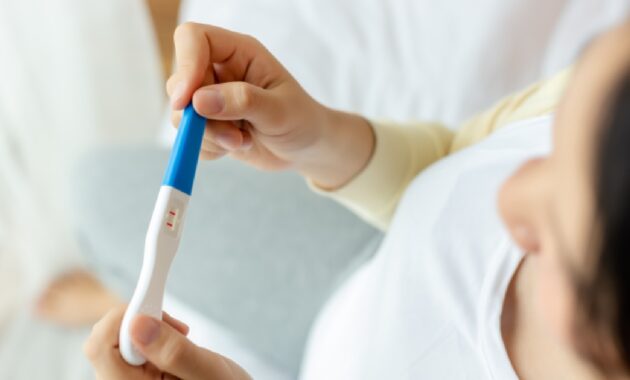Polycystic Ovary Syndrome, commonly known as PCOS, affects women of reproductive age. It is characterised by hormonal imbalances that can disrupt ovulation. The most common symptoms are irregular periods or no periods at all. This can be frustrating, in general, but can be worrisome for those trying to conceive. PCOS often leads to the onset of symptoms such as excess hair growth on the face and body, acne, and weight gain. These physical manifestations can have a significant impact on self-esteem and overall quality of life. One of the most significant challenges for women with PCOS is the impact it can have on their fertility. A large number of women with PCOS struggle to conceive, making it a deeply frustrating and emotionally taxing condition.
These are some of the reasons why PCOS tends to cause problems during pregnancy. Here’s everything you need to know.

How does PCOS affect pregnancy?
The key factor contributing to infertility in women with PCOS is anovulation, which means the ovaries do not release eggs regularly or at all. This hormonal imbalance disrupts the normal menstrual cycle, making it difficult for these women to predict when they will ovulate and decrease their chances of getting pregnant naturally.
Women with PCOS often have irregular menstrual cycle or may not get periods at all, which makes it difficult to predict when they are most fertile. Additionally, the hormonal imbalances associated with PCOS can disrupt ovulation and lead to arrest of the development of growing follicles in the ovaries, further hindering fertility.
High levels of insulin in the blood affects the overall milieu in ovaries and can further interfere with the ovaries’ ability to produce mature eggs.
Can you conceive in your 30s with PCOS?
Many women with PCOS struggle with fertility issues, but does this mean getting pregnant after 30 is impossible? No, age alone doesn’t determine the possibility of conception for women with PCOS. While it’s true that fertility declines as women get older, particularly after the age of 35, there are still possibilities for pregnancy. One added advantage of these women with PCOS is that they have ample amounts of ovarian reserve.
Women over 30 with PCOS who also have an ovarian condition face higher pregnancy risks, although it is still possible to have a healthy pregnancy. The key lies in managing and understanding the PCOS symptoms and working towards it in time. Eating a healthy diet and regular exercise are crucial for managing and preventing this condition. Additionally, glucose screenings during pregnancy may be beneficial for women with PCOS . Consult your doctor regularly to keep track of the condition and avoid complications.
Select Topics of your interest and let us customize your feed.
PERSONALISE NOW
Also Read: 7 expert-recommended tips to manage PCOS at home

The last word
It’s important to remember that PCOS affects each woman differently. While some may face greater challenges conceiving due to advanced age combined with the condition, others may get pregnant relatively easily. As every woman’s journey is different, seeking advice from a fertility specialist can help you navigate through any potential hurdles you may face along the way. In more severe cases where medication alone is not enough, assisted reproductive technologies like in vitro fertilization (IVF) may be considered a viable solution. Egg freezing, also known as oocyte cryopreservation, is another option. It allows women to preserve their eggs for future use. Advancements in technology have significantly improved the success rates of getting pregnant.
#PCOS #pregnancy #pregnant #post #30s
